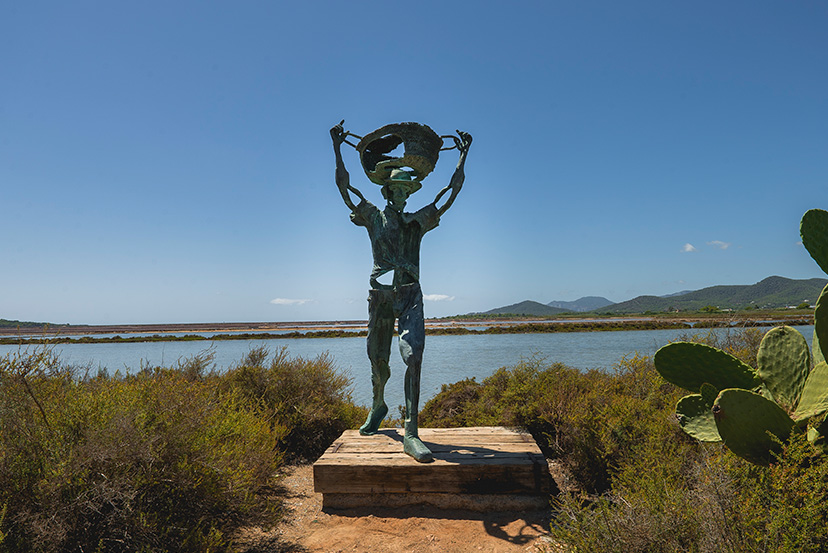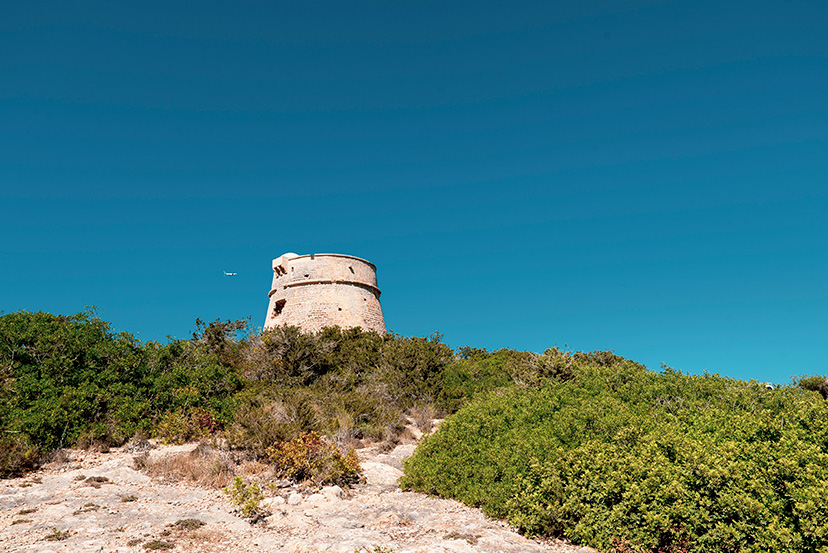Salt and the island of Ibiza have been inextricably linked since ancient times. This “white gold” was the main source of the island’s economy for centuries, and the numerous and diverse cultures that settled there were instrumental in improving its extraction and production techniques.
Ibiza’s salt pans are the heart of the industry that produces the mineral, and the salt marshes were declared a Natural Park in 2001. There visitors will find the ancient lagoons from which salt has been extracted for hundreds of years, initially by traditional artisans, but over the years the extraction process became increasingly mechanised. This mineral was so highly valued that at one point it was even used as a currency and is the origin of the word “salary.”
For many years, the salt industry was a highly profitable business, because it was considered to be so much more than a condiment and one of the few elements that could be used to preserve foods. In the case of Ibiza, extraction involved moving thousands of tonnes of this product every year, transporting it in barges. In this way, the salt works became a modern company in the vanguard of progress, with every type of service required to promote and assist the business, ensuring good communication with the island’s ports, and it was, in fact, the first place on the island to install a telephone.
There are indications that the Phoenicians and the Carthaginians may well have exploited these salt pans, as it so happens that they settled in places which were later to become important salt production centres. Later, the Punic peoples and the Romans began to extend their rural exploitations around the salt pans and they even changed the natural environment of these wetlands, a fact which clearly indicates that a proper salt extraction industry existed, rather than just a simple collection process.
Salt became an important component of the island economy, and during the medieval and renaissance periods vessels from many countries travelled to the island to load up its salt. The industry has only recently become mechanised and previously the work involved hundreds of people, as witnessed in the re-enactments staged every year as part of the Salt Fair.
The Ibiza and Formentera salt pans were the first area on the island to be designated a protected natural zone, and together they form an important and enormously diverse ecological unit with a climate, geography and landscape that have combined to create some exclusive natural features.
Today it is possible to savour Ibizan salt, on sale in all the island’s supermarkets and grocery shops, in a number of different formats, fine, coarse, alone or in combination with different condiments.
The history of salt in Ibiza goes back thousands of years and teaches us something of the marine culture that characterises this part of the Mediterranean. Visiting the salt pans, buying the condiment or regaling friends and family with this special condiment, are true gifts from nature.


